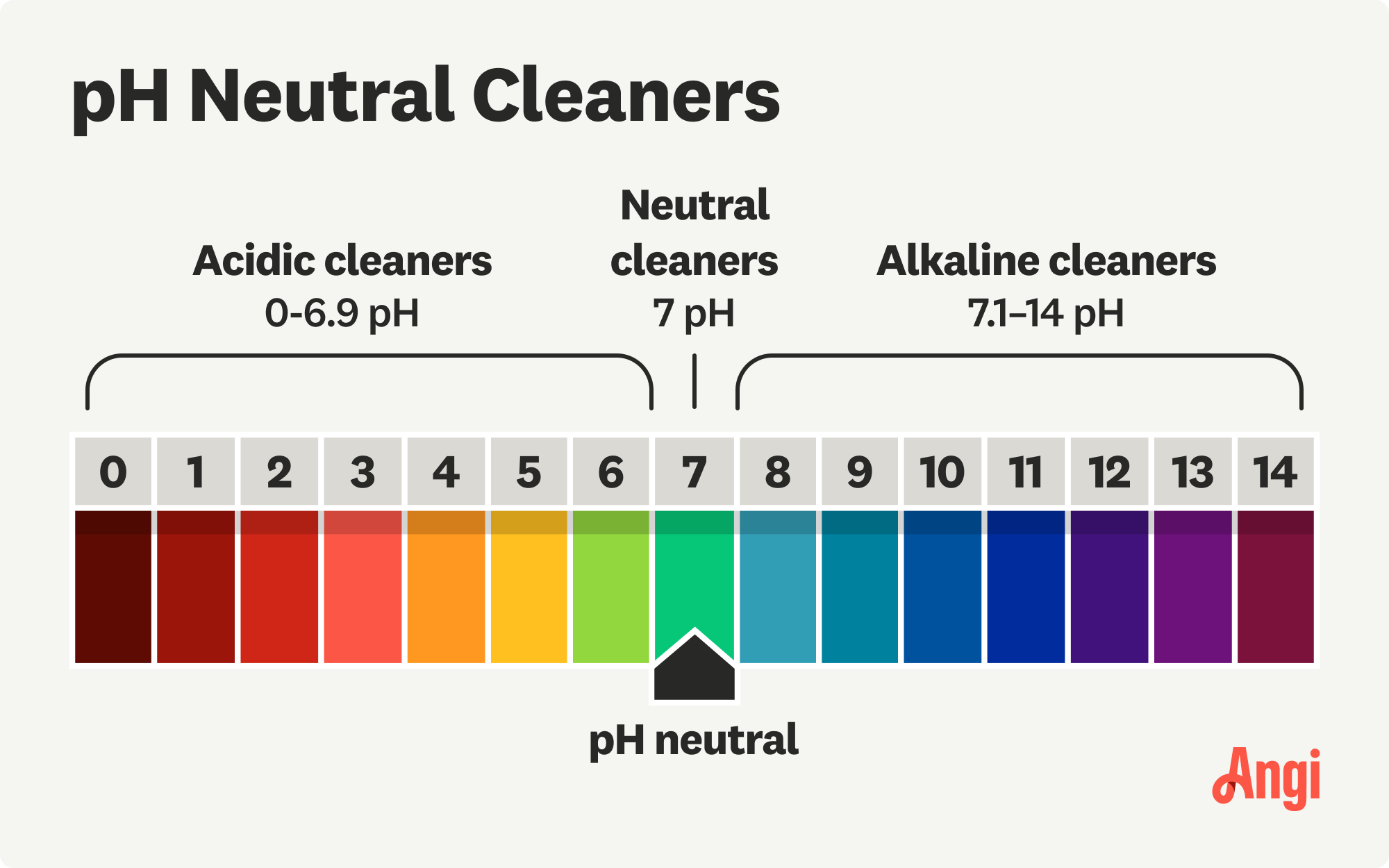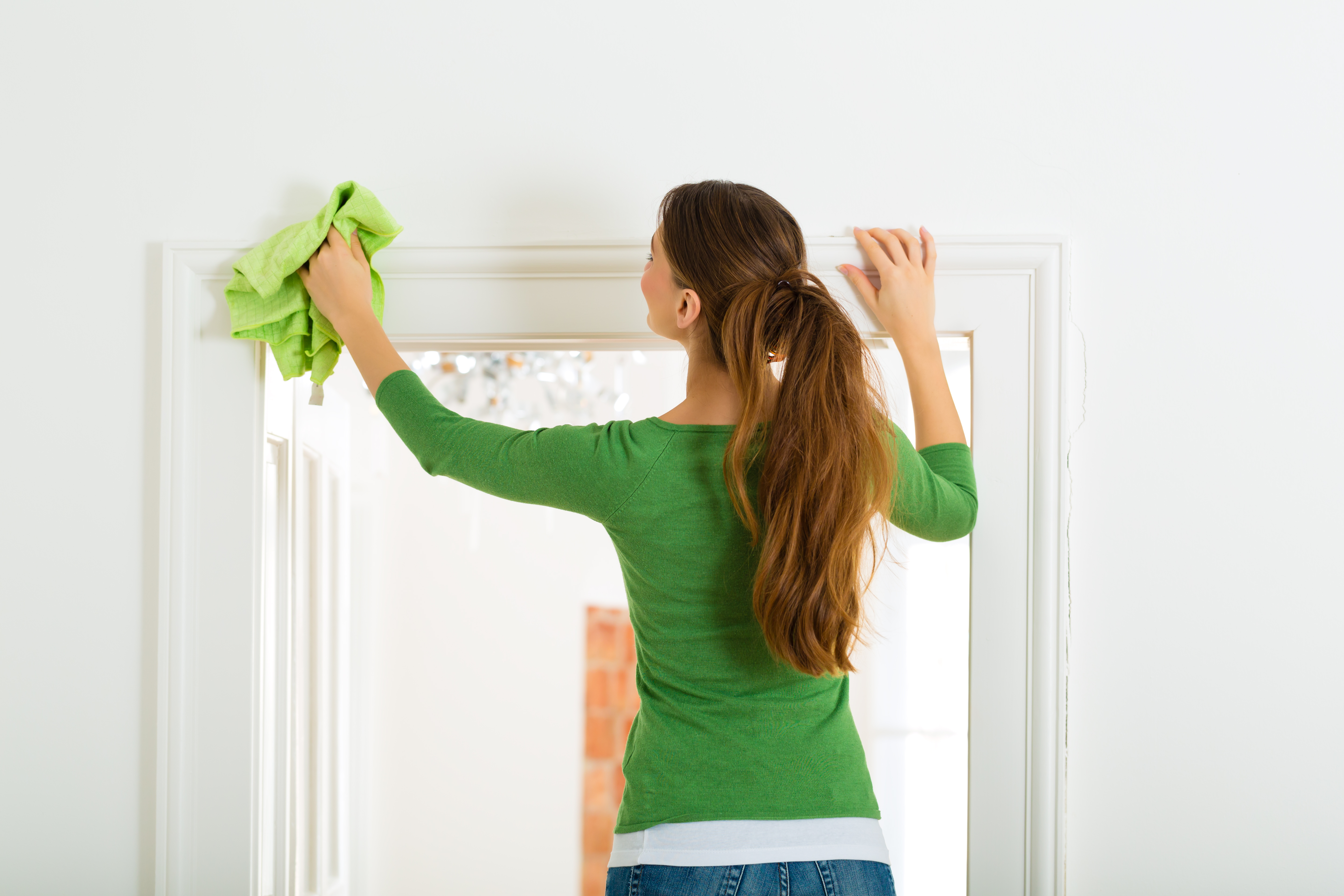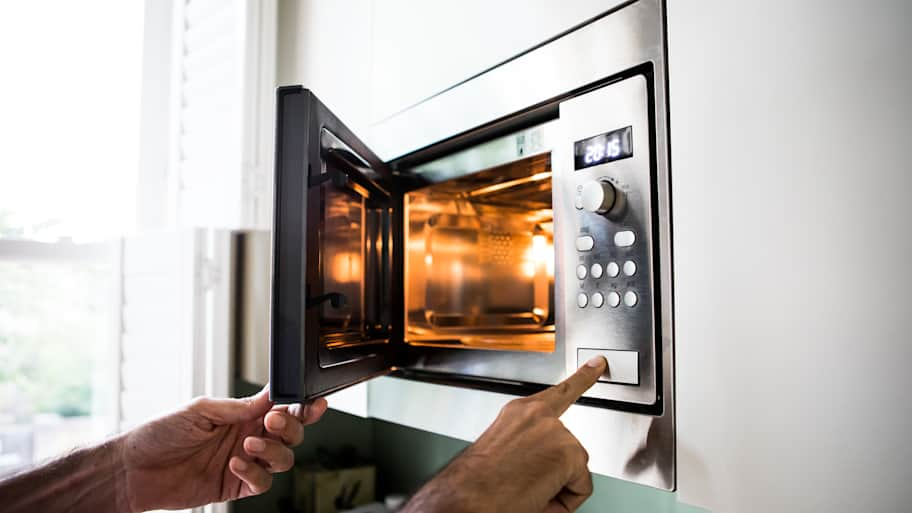
Mattress cleaning cost depends on the number of mattresses being cleaned and the size of each. Use this guide to better understand mattress cleaning prices.
Keep natural stone counters, floors, and tiles shining with a pH neutral cleaner


pH neutral cleaners have a pH of 7, making it a safe option for cleaning sensitive surfaces.
pH neutral cleaners are perfect for refreshing natural stone slabs or tile, including counters, floors, or backsplash.
You can create a DIY pH neutral cleaner using water and pH neutral dish detergent.
pH neutral cleaners cost about $10 to $25 per gallon.
Picture this: Your new stone countertops look amazing in your kitchen, but then something dreadful happens: you swipe across the surface with a cleaning cloth and your go-to lemon and vinegar cleaner, only to discover that it leaves the stone discolored and etched.
As it turns out, cleaners that are too acidic or too alkaline can ruin natural stone countertops and tiles. That’s why it’s crucial to learn how to properly use a pH neutral cleaner if you want to preserve the look and feel of your smooth, sleek stone surfaces.

A pH neutral cleaner falls right in the middle of the pH scale. The pH scale ranges from 0 to 14, with more acidic materials ranging from 0 to 6.9 and more alkaline materials ranging from 7.1 to 14. A pH neutral cleaner will have a pH of 7, making it safe to use on sensitive surfaces, like those made from natural stone.
Some surfaces are vulnerable to damage when they come into contact with acidic or alkaline cleaning solutions. But pH neutral products can efficiently deep clean these sensitive surfaces without causing burning, which leaves discoloration on the surface, or etching, which strips a smooth, shiny surface like stone, leaving it rough and dull.
If your floors, walls, or countertops are made of natural stone slabs or tiles, it’s time to break out the pH neutral cleaner. But a pH neutral cleaner isn’t just good for deep cleaning stone surfaces. While this type of cleaner will prevent etching, which turns the surface rough, or discoloration on natural stone, you can also use it on other materials, including:
Untreated wood
Grout
Hardwood floors
Vinyl
PVC
That’s not to say acidic or alkaline cleaners are bad, either. Acidic cleaners are great for removing mineral buildup, like rust or calcium. Alkaline cleaners can cut through tough grease stains and dirt. But these powerful cleaners aren’t great for all types of floors, countertops, or backsplash, especially natural stone.
While it’s best to put on rubber gloves before cleaning the house, one great benefit of using a pH neutral cleaner is that it poses less risk of causing skin irritation if it comes in contact with your hands. This type of cleaner is meant for hard surfaces, but you can spray it safely near or around soft surfaces, like where hardwood floors meet a rug, without staining or bleaching those soft surfaces.
If you’re not feeling particularly confident about using pH neutral cleaner, you can hire a local cleaning service to safely, efficiently clean the natural stone and other sensitive surfaces in your home.
You can find pH neutral cleaners at most home improvement stores or online for around $10 to $25 per gallon. The label should say pH neutral, but you should also check the ingredients list to ensure the product doesn’t include phosphates, silicates, or hydroxides. To use these store-bought pH neutral cleaners, follow the instructions on the label.
You can also make a pH neutral cleaner at home using cleaning supplies you probably already have around your house. Follow these simple steps to create your own.
Add ¼ cup of pH neutral dish detergent to a cleaning bucket.
Mix in 1 gallon of warm water until suds form.
Be sure to test the cleaner in an inconspicuous spot before applying it to sensitive surfaces.
Even products labeled as natural and ones you might cook with like vinegar can have a pH that’s out of the neutral range. The best way to tell if a cleaner is neutral is to check the acidity or alkalinity on the product label. Any cleaner with a pH above or below seven is not a neutral solution.
Some cleaners that aren’t pH neutral include:
Vinegar
Bleach
Ammonia
Borax
Some glass cleaners
Baking soda
Lemon juice
Toilet bowl cleaner
Tub and tile cleaner
Raven and crew does absolutely fantastic job. They are very professional if any concerns were to occur with any of her work she always took responsibility and finished out with a great job. I have worked with her business for a year and have always been satisfied. Very trusted business and...
Window depot replaced all 14 windows in my house, front door and added a new back door. They did a wonderful job with some tricky windows in this old house. They were quick but efficient and cleaned up everything inside and out. I have already passed their contact information on to my...
Maple Tree Service should serve as a mentor for other business! Customer service was superior and beyond expectation. Response to request was prompt. The representative was very courteous and proud of the company. Quote was given during initial visit and work date established. A follow up...
I was contacted within a day of posting, met with Alfredo within days, who scheduled a cleaning next day. Gigi and a team member worked quickly and efficiently to give my home a thorough cleaning. I am recuperating from an extended illness and have been unable to keep up with my cleaning or...
his summer it was time... after building my home in 2010 I didn't think I would need to replace my windows for a while, but about 3/4 years after we moved in, our windows started fogging up. Our energy bills weren't too bad, however we knew our current windows were not efficient. So the...
They were on time. Did a thorough job everything was very clean. They did a the whole house INCLUDING APPLIANCES. Price was very reasonable.
We needed them to do extra work to remove existing wallpaper, and provide full primer and painting/trim work around existing furniture etc, during a move-in period. They did everything top-notch with minimal mess. They were always extremely on time, and very professional. They also cleaned...
They did a great job and were easy to work with. They thinned the trees out while leaving a pleasing shape and setting them up for the next several years. They cleaned everything up and couldn't have been nicer.
I found getting scheduled to be much easier than I had expected. I had company coming in town the following week and thought I would use that as an opportunity to have the house cleaned by a professional. Before purchasing this deal, I had read in some of the reviews about confusion from...
From average costs to expert advice, get all the answers you need to get your job done.

Mattress cleaning cost depends on the number of mattresses being cleaned and the size of each. Use this guide to better understand mattress cleaning prices.

Garage clean-out costs vary considerably depending on the garage size, the waste type and amount, and how much work you do yourself.

Curious how much it costs to hire a housekeeper? Discover 2025 prices, key cost factors, and tips to save on professional housekeeping for your home.

Tired of finding hard water stains around your home? Learn how to remove hard water stains from toilets, shower doors, counters, and more.

Looking for tips for microwave cleaning? We’ve assembled seven that’ll have your favorite kitchen shortcut looking (and smelling) as good as new in a flash.

Does your water taste off? It may be time to clean your water dispenser. Use this guide to learn how to clean a fridge water dispenser.